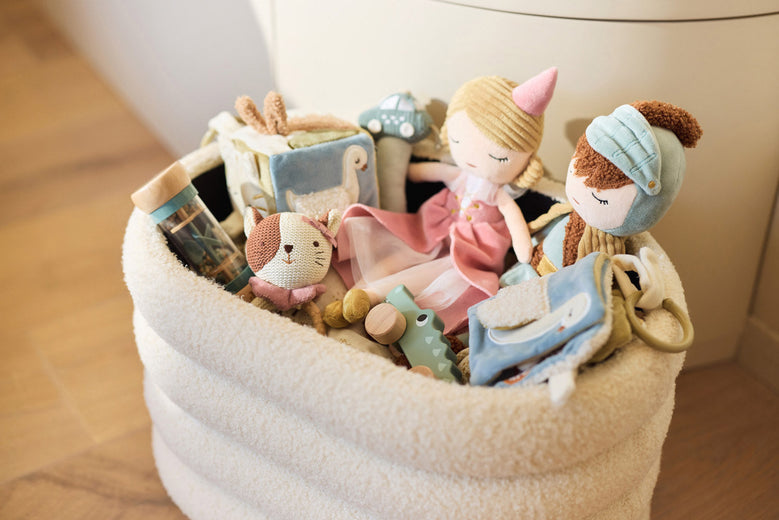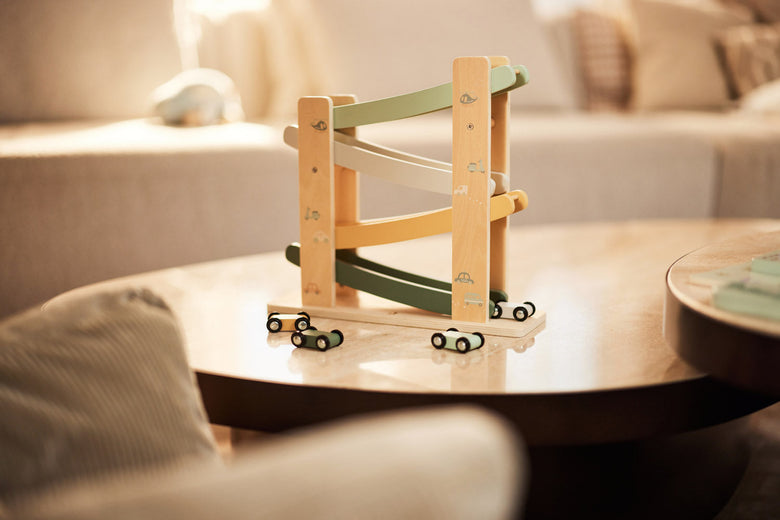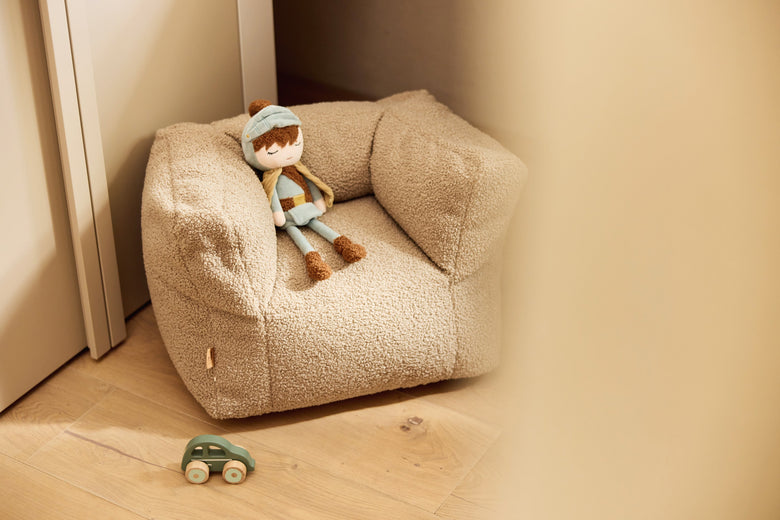08 June 22
When and How to Start Creating a Sleep Routine for Your Newborn Baby
Judith (34) is a baby and child sleep coach with her own sleep coaching practice, Project Slaap, and has already helped many little ones (and parents) on their way to better sleep! Judith is mom to Maxe (2.5 years old) and currently expecting her second child. And as a sleep coach, of course, she knows all about teaching healthy sleep habits… In this blog, Judith shares when and how to start establishing a sleep routine for your newborn.
After the birth of our daughter Maxe, I had just one goal when it came to sleep: getting her to sleep through the night as soon as possible. I used the book The Contented Baby as my guide, and after 7 weeks, I no longer had to get up at night (apart from one late evening feed at 10:30 PM), and she was already sleeping in her own bed during the day. A pretty successful story, right? Of course, I heard other experiences around me, but I didn’t fully understand at the time why things were different for some. By now, I know better — especially that sleeping through the night (with only one evening feed) at 7 weeks is definitely not 'the norm'. In fact, most babies still need at least 2 feeds between 7:00 PM and 7:00 AM around the 12-week mark.
More important than aiming for uninterrupted sleep without feeds, is working on healthy sleep habits, recognizing signs of tiredness, managing wake windows, and building a routine. In my opinion, you can start introducing this as early as 6 weeks, but ideally somewhere between 8 and 12 weeks. But how do you do that?
In the first 3 weeks after your baby is born, you'll notice your little one mostly sleeps and only wakes for a bottle, a clean diaper, and some cuddles. Most babies at this age can only stay awake for about 40 to 60 minutes before easily falling asleep again after feeding. This is because babies are born with high levels of melatonin from their mothers. After about 6 weeks, these natural melatonin levels decrease, and babies aren’t yet able to produce their own melatonin effectively. This usually develops around 8 weeks, which is the perfect moment to let your baby nap in a dark bedroom — essential for the production of melatonin, the sleep hormone!
As I mentioned, it's best to start building a routine between 6 and 12 weeks, as this is when your baby's biological clock starts to develop, and they can begin to distinguish between day and night. You can help regulate this by exposing your baby to plenty of daylight, social interaction, appropriate naps, and regular feeds during the day. For example, by waking your baby for feeds during the day, you reduce the chance they will need extra feeds at night due to insufficient intake during the day.
Before diving into a strict routine, I recommend paying close attention to your baby's wake windows. The wake window is the time from when your baby wakes up until they go back to sleep. Following these windows helps ensure your baby isn’t overtired when it’s time to sleep. When babies become overtired (from being awake too long), they produce stress hormones like cortisol and adrenaline, making it harder for them to fall asleep and stay asleep — often resulting in short, restless naps.
To prevent overtiredness, I recommend using the following wake windows:
-
Up to 3 weeks: max. 45 minutes
-
3 to 6 weeks: 60 minutes
-
6 to 12 weeks: 60 to 105 minutes
Based on these windows, you can gradually work towards a routine — starting the day at the same time, waking your baby for daytime feeds, and making sure they go back to sleep within their wake window. During these first weeks, don’t rely solely on timing; also watch closely for tiredness cues. Red patches around the eyes or eyebrows, rubbing eyes, yawning, or becoming fussy are signs your baby is tired and ready for sleep.
Sticking to wake windows and following a routine might sound like the secret formula for sleep success, but the most important skill — falling asleep independently — still needs to be addressed.
Falling asleep independently is something every baby has to learn. It helps to observe tiredness cues and wake windows, but no matter how well you manage those, your baby will still need your help falling asleep, especially in the beginning — and that’s totally fine! Once you’re ready to work towards a routine, you can gradually reduce the level of help you provide. Initially, you might soothe your baby completely to sleep — by holding, rocking, or using the shush-pat method — but over time, you start putting them down slightly more awake, until after a consistent bedtime routine, you can place them down fully awake, and they fall asleep on their own.
When I was pregnant with Maxe, I had no idea how I would handle my baby's sleep — I figured it would just work itself out. But now, being pregnant with my second child, it’s a different story. I know so much more about sleep and, of course, I want to do everything 'right' from the start. At the same time, I also know the clichés are true — this precious time flies by before you know it. So, I’ll take the first few weeks as they come. If it goes as smoothly as it did with Maxe, I’ll be lucky. And if not, I know exactly how to start building a routine between 6 and 12 weeks to help this baby become a good sleeper too!


